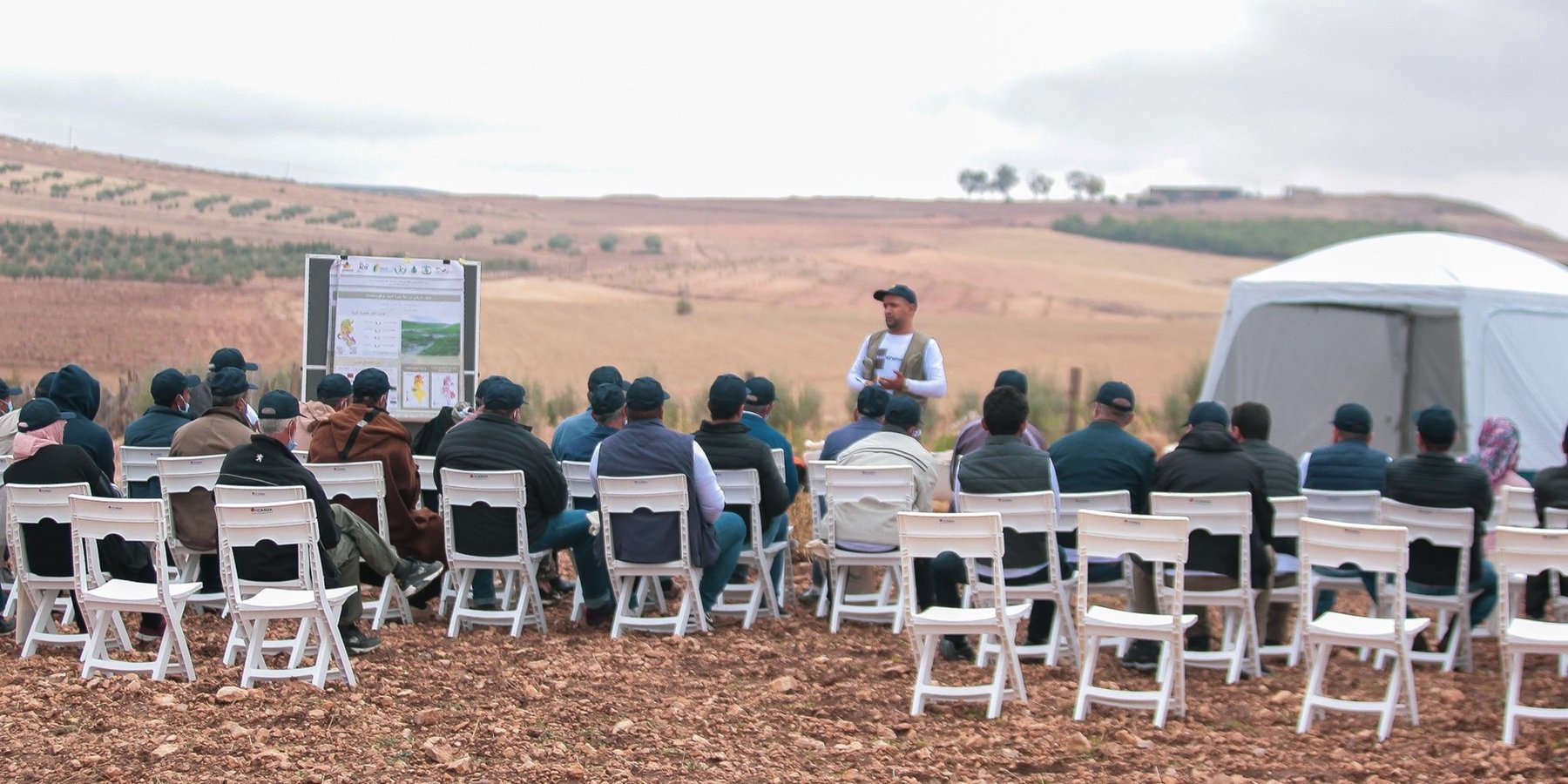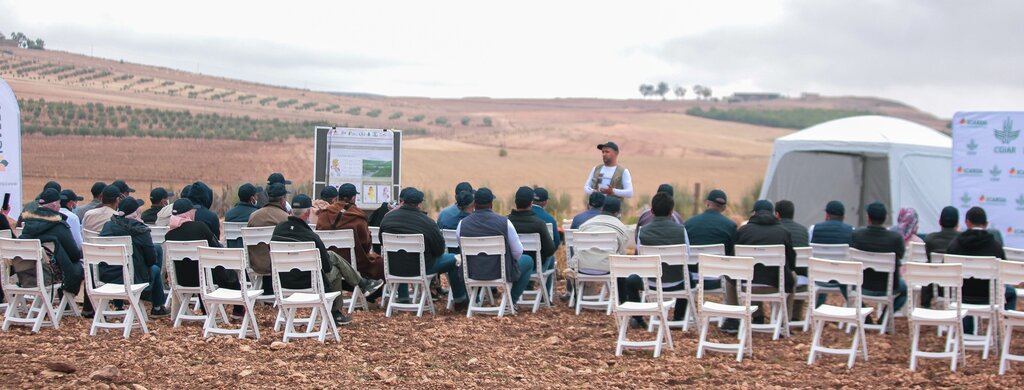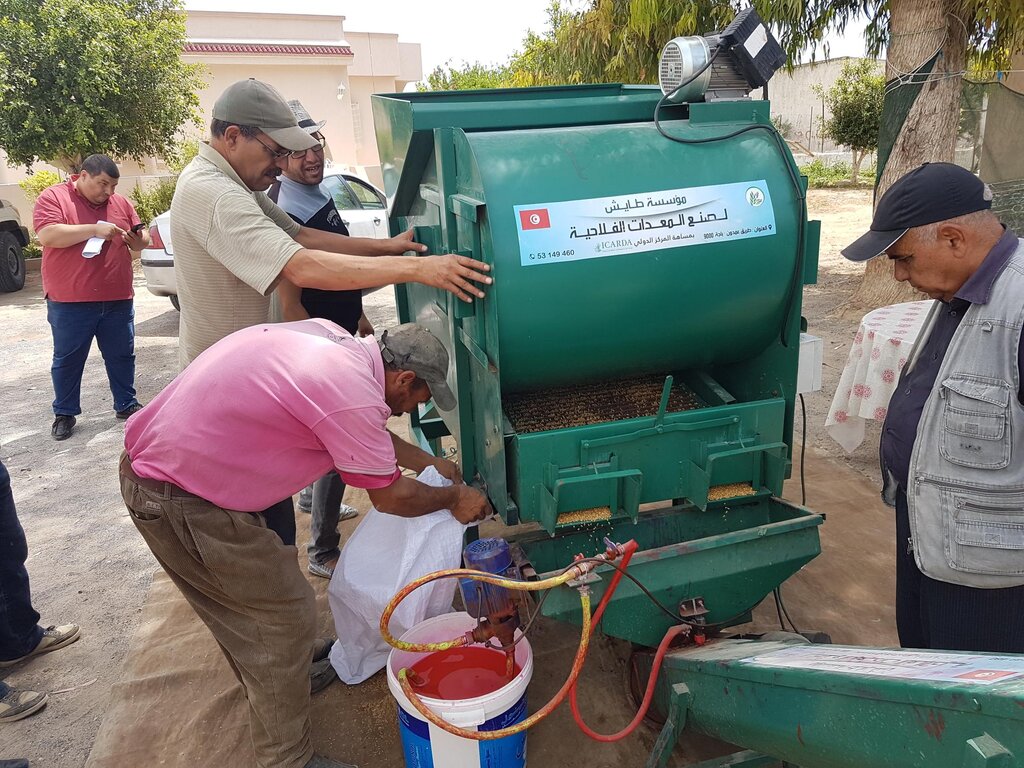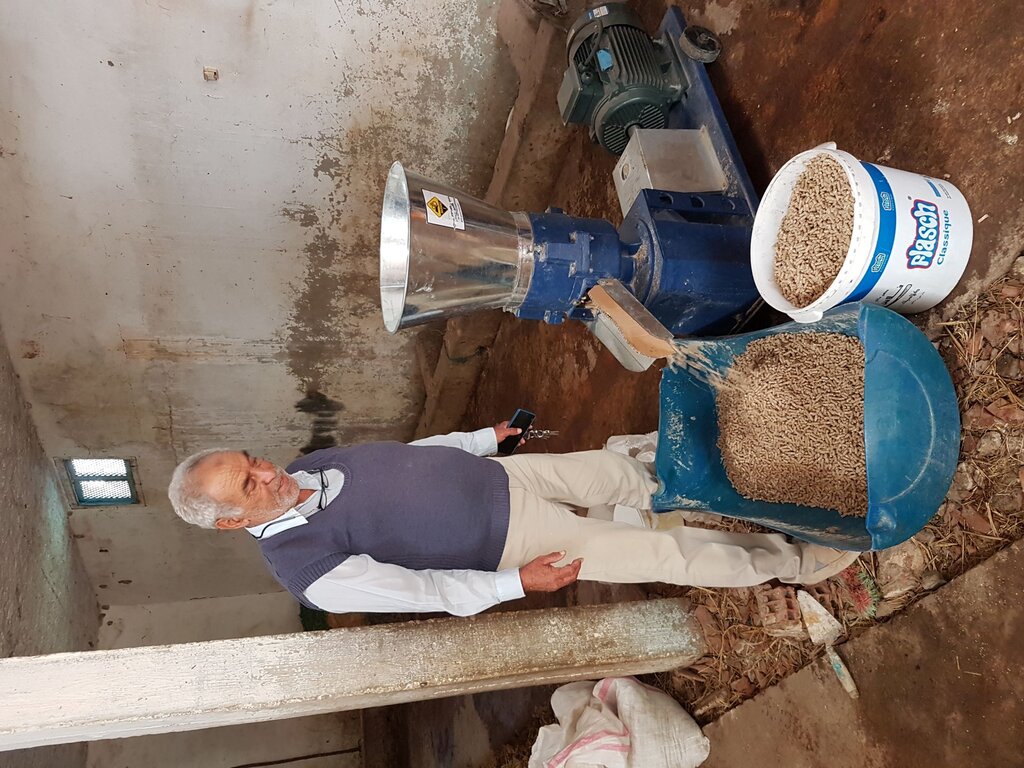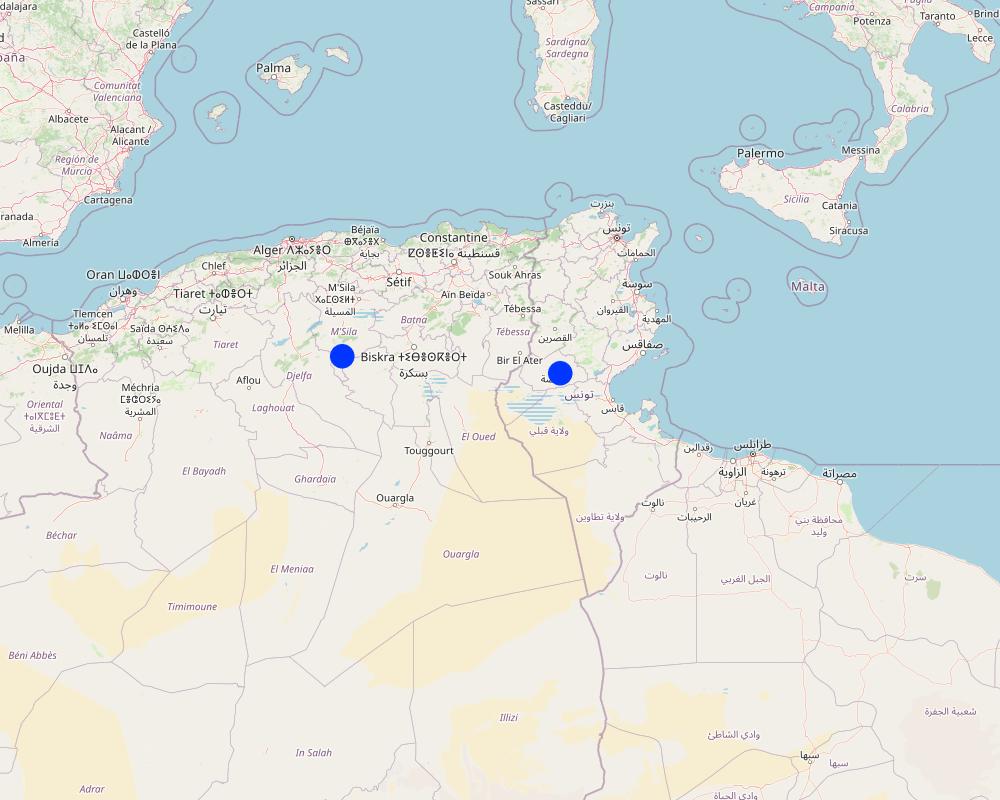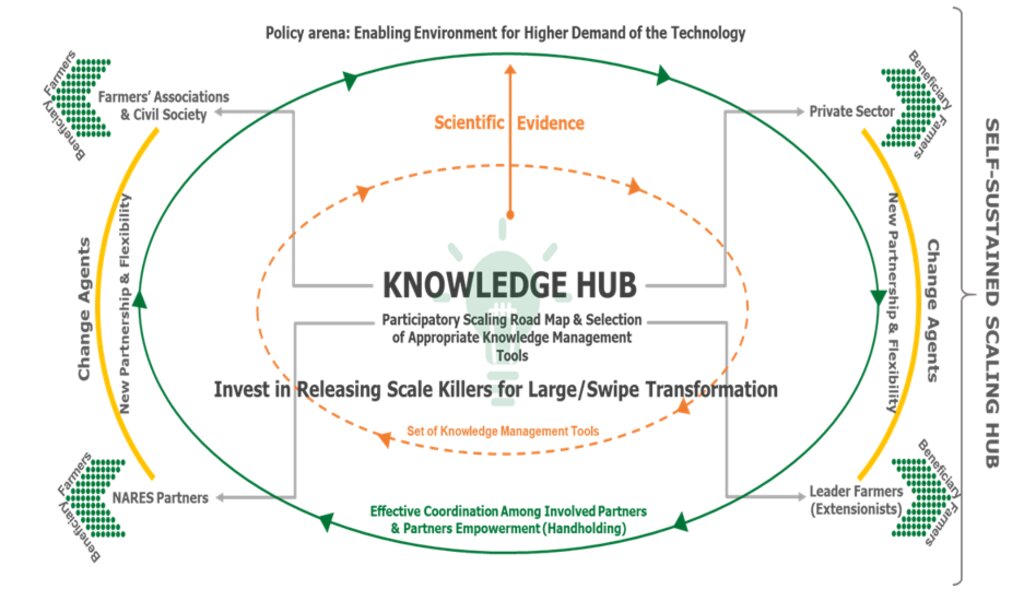The 4-Wheels Approach for sustainable scaling [ຕູນິເຊຍ]
- ການສ້າງ:
- ປັບປູງ:
- ຜູ້ສັງລວມຂໍ້ມູນ: Joren Verbist
- ບັນນາທິການ: –
- ຜູ້ທົບທວນຄືນ: William Critchley, Rima Mekdaschi Studer
approaches_6885 - ຕູນິເຊຍ
ເບິ່ງພາກສ່ວນ
ຂະຫຍາຍທັງໝົດ ຍຸບທັງໝົດ1. ຂໍ້ມູນທົ່ວໄປ
1.2 ລາຍລະອຽດ ການຕິດຕໍ່ ຂອງບຸກຄົນທີ່ຊັບພະຍາກອນ ແລະ ສະຖາບັນ ການມີສ່ວນຮ່ວມ ໃນການປະເມີນຜົນ ແລະ ເອກະສານ ຂອງວິທີທາງ
ບຸກຄົນສຳຄັນ (ຫຼາຍຄົນ)
Agricultural Economist:
Aymen Frija
International Center of Agricultural Research in Dry Areas (ICARDA)
ຕູນິເຊຍ
Specialist on Economics and Participatory Methods:
Idoudi Zied
International Center of Agricultural Research in Dry Areas (ICARDA)
ຕູນິເຊຍ
Agricultural Innovation Specialist:
Rudiger Udo
International Center of Agricultural Research in Dry Areas (ICARDA)
ຕູນິເຊຍ
ຊື່ຂອງໂຄງການ ທີ່ອໍານວຍຄວາມສະດວກ ໃນການສ້າງເອກກະສານ ຫຼື ປະເມີນດ້ານແນວທາງ (ຖ້າກ່ຽວຂ້ອງ)
ICARDA Institutional Knowledge Management Initiativeຊື່ຂອງ ສະຖາບັນການຈັດຕັ້ງ ທີ່ອໍານວຍຄວາມສະດວກ ໃນການສ້າງເອກກະສານ ຫຼື ປະເມີນແນວທາງ (ຖ້າກ່ຽວຂ້ອງ)
International Center for Agricultural Research in the Dry Areas (ICARDA) - ລີບານອນ1.3 ເງື່ອນໄຂ ຂອງການນໍາໃຊ້ເອກກະສານຂໍ້ມູນ ຂອງ WOCAT
ເມື່ອໃດທີ່ໄດ້ສັງລວມຂໍ້ມູນ (ຢູ່ພາກສະໜາມ)?
2022
ຜູ້ສັງລວມ ແລະ ບັນດາຜູ້ຕອບແບບສອບຖາມ ຍອມຮັບໃນເງື່ອນໄຂ ການນໍາໃຊ້ຂໍ້ມູນເອກະສານ ທີ່ສ້າງຂື້ນ ໂດຍຜ່ານ ອົງການ WOCAT:
ແມ່ນ
1.4 ເອກະສານອ້າງອີງ (ຫຼາຍ) ກັບແບບສອບຖາມ (ຫຼາຍ) ເຕັກໂນໂລຢີ ຂອງດ້ານການຄຸ້ມຄອງ ດິນແບບຍືນຍົງ
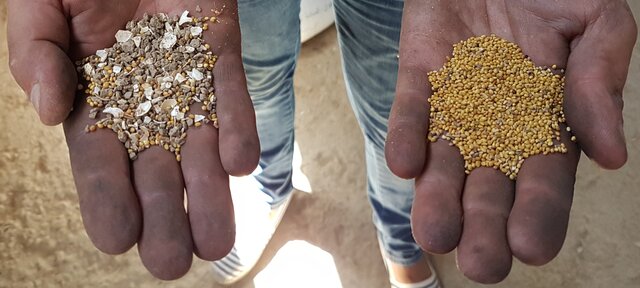
Small-Scale Seed Cleaning Unit [ຕູນິເຊຍ]
The mobile seed cleaning machine improves the livelihoods of smallholder farmers in Tunisia by significantly enhancing seed quality, increasing crop production, reducing workload and costs, and promoting local value chains and social cohesion.
- ຜູ້ສັງລວມຂໍ້ມູນ: Joren Verbist
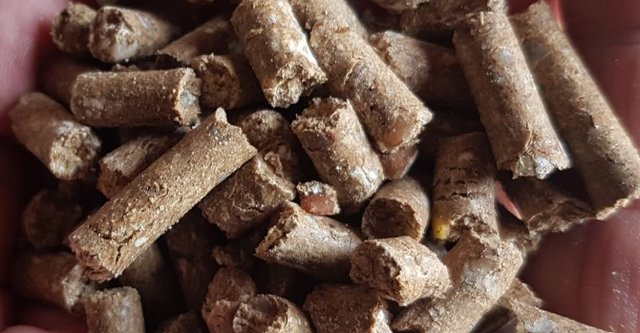
Small-Scale Nutrient-Dense Pellet Production [ຕູນິເຊຍ]
Compressing agro-industrial by-products produces nutrient-dense livestock feed pellets that can compete with expensive and imported alternatives. This innovation consists of a small-scale compressor or "pelletizer" and formulae to create feed pellets of sufficient quality with locally available inputs.
- ຜູ້ສັງລວມຂໍ້ມູນ: Joren Verbist
2. ພັນລະນາ ແນວທາງການຄຸ້ມຄອງນໍາໃຊ້ດິນແບບຍືນຍົງ
2.1 ການອະທິບາຍ ໂດຍຫຍໍ້ ຂອງວິທີທາງ
The 4-Wheels Approach addresses the challenge of slow adoption of agricultural innovations among smallholder farmers by establishing Knowledge Hubs and partnerships with diverse stakeholders. The focus is on income-generating technologies and essential factors behind successful scaling up of innovations, ultimately driving agricultural modernization and sustainability.
2.2 ການອະທິບາຍ ລາຍລະອຽດ ຂອງວິທີທາງ
ການອະທິບາຍ ລາຍລະອຽດ ຂອງວິທີທາງ:
The challenge of low and slow adoption of innovations from agricultural research by smallholder farmers is difficult, complex, and is impeding the progress of agricultural modernization in many developing countries. This issue has negative consequences on farm productivity and farmers' livelihoods. Furthermore, it influences the outcomes of investments made by both national and international agricultural research and development initiatives. The problem is exacerbated by evolving climatic and social conditions, which makes more urgent the need for systemic transformation and modernization to enhance food production - while ensuring sustainability.
To confront this challenge of low rates of scaling up and adoption, the International Center of Agricultural Research in Dry Areas (ICARDA) introduced and validated the “4-Wheels Approach” in countries where ICARDA is active, including Algeria and Tunisia. Among other innovations, two types of machinery are being scaled up this way: (a) the pelletizer (which creates feed pellets from by-products) and (b) the seed cleaning machine (for mechanical seed cleaning, substantially reducing workload). Both technologies have been documented in WOCAT’s global database.
The 4-Wheels Approach is built upon Knowledge Hubs and dynamic partnerships. Knowledge Hubs encompass physical structures, such as (informal) training centres, which usually belong to local farmers’ associations and cooperatives. The purpose of these hubs is to refine and disseminate knowledge locally in a self-sustained way, potentially through established partnerships with key local and regional stakeholders and scaling partners. Four categories of stakeholders, also referred to as change-agents and facilitators of technology dissemination, are identified: i) farmers’ groups and various other local associations, ii) civil society (including non-governmental organizations (NGOs) and the private sector), iii) national public development partners, and iv) lead farmers and extensionists, all of whom play a pivotal role in holding the key knowledge about the technology and spreading it locally. Consequently, these Knowledge Hubs serve to further adapt and mainstream technical knowledge through intermediary beneficiaries (also called proxies or “ambassadors” of the technology), who in turn facilitate dissemination to the ultimate users and beneficiaries, namely the farmers. Viewing the approach’s scaling and Knowledge Hubs through this lens underscores the necessity of investing in continuous and comprehensive networking, which doesn’t overlook any of the possible and relevant scaling partners.
The implementation of the 4-Wheels Approach via Knowledge Hubs and collaborative partnerships has emerged as a compelling strategy for challenges in the uptake of agricultural innovations, fostering a sustainable pathway towards modernization, and thus uplifting the well-being of smallholder farmers in developing areas. The concepts of 4-Wheels Approach and Knowledge Hubs are closely related and interlinked/integrated. The participation of the four types of partners who are engaged through the 4-Wheels Approach within the Knowledge Hub activities allows them to better understand, participate and advocate for relevant local innovations. The 4-Wheels Approach ensures the concentrated involvement of scaling partners of different background within the same landscape, and thus efforts to engage innovation actors become more fruitful by being more accessible and inclusive.
Acknowledgement: This research was funded by the CLCA project (funded by IFAD), PROSOL (funded by GIZ), and OneCGIAR initiative on agroecology. All of the previous projects and initiatives are implemented and coordinated by the International Center for Agricultural Research in the Dry Areas (ICARDA). The projects partnered with national partners including the OEP (Office de l’elevage et des pâturages) for the training of the cooperatives, as well as Tunisia’s National Agricultural Research Institute (Institut National de la Recherche Agronomique en Tunisi, INRAT) and the National Institute of Field Crops (Institut National des Grands Cultures, INGC) which selected the cooperatives, and the Regional Department for Agricultural Development (Commissariat Regional de Développement Agricole, CRDA) which facilitated the access to farmers communities and creation of knowledge hubs. We would like to thank all partners for their contributions and collaboration.
2.3 ຮູບພາບຂອງແນວທາງ
2.5 ປະເທດ / ເຂດ / ສະຖານທີ່ບ່ອນທີ່ແນວທາງໄດ້ຖືກນໍາໃຊ້
ປະເທດ:
ຕູນິເຊຍ
Map
×2.6 ວັນທີເລີ່ມຕົ້ນ ແລະ ສິ້ນສຸດ ການຈັດຕັ້ງປະຕີບັດ ວິທີທາງ
ຖ້າຫາກບໍ່ຮູ້ຈັກປີທີ່ແນ່ນອນ, ໃຫ້ປະມານຄາດຄະເນ ເອົາມື້ທີ່ໄດ້ເລີ່ມຈັດຕັ້ງປະຕິບັດ ວິທີທາງ:
ຕໍ່າກວ່າ 10 ປີ ຜ່ານມາ (ມາເຖິງປະຈຸບັນ)
2.7 ປະເພດຂອງແນວທາງ
- ພາຍໃຕ້ໂຄງການ / ແຜນງານ
2.8 ເປົ້າໝາຍ / ຈຸດປະສົງຫຼັກ ຂອງການຈັດຕັ້ງປະຕິບັດ ວິທີທາງ
The aim of this approach is to achieve sustainable scaling and foster greater adoption of innovations. This is pursued through the establishment of Knowledge Hubs (as spaces of innovation) where, the formation of partnerships (based on the 4-Wheels Approach), and the research into viable business models is carefully and step-wise implemented (in reference list see the protocol for implementation in Frija & Idoudi 2020).
2.9 ເງື່ອນໄຂອໍານວຍ ຫຼື ຂັດຂວາງການປະຕິບັດຂອງເຕັກໂນໂລຢີ / ເຕັກໂນໂລຢີການນໍາໃຊ້ຕາມແນວທາງ
ມີຄວາມສາມາດ / ເຂັ້າເຖິງຊັບພະຍາກອນດ້ານການເງິນ ແລະ ການບໍລິການ
- ເຊື່ອງຊ້ອນ
A minimum of financial resources are needed to create and establish the knowledge hub in the form of informal training center at the cooperative and farmers association level. These fees aims at creating a local space for the community which can be “pedagogically” relevant for further exchange, discussions, trainings, and joint decision making by the community. Such spaces are material investments which can partly enhance the social capital and support the process of building collective cognitive capacity of farmers.
ການກໍ່ຕັ້ງສະຖາບັນ
- ເຊື່ອງຊ້ອນ
The 4-Wheels Approach supports the process of technology transfers in countries where there is a lack of connections and collaboration between research and development. Under such institutional conditions where extension services are low and unavailable, and where research programs are disconnected from the real concrete problems and development bottlenecks, the 4-Wheels approach can be instrumental to leverage the public investments in technology transfers by creating local performing knowledge hubs which would remain sustainable thanks to the mobilization of all relevant innovation and scaling partners (as identified in the 4-wheel partners typology – see above
ການຮ່ວມມື / ການປະສານງານຂອງຜູ້ກ່ຽວຂ້ອງ
- ອໍານວຍ
This was rather enabling as different actors like OEP (livestock agency) on the regional level as well as national level were always willing to collaborate with ICARDA and the different beneficiary communities of our different projects (listed in the acknowledgement). This is also especially relevant given that the early technologies for which we built and started piloting the concept of knowledge hubs and partnership for scaling were focusing on forage crops and forage mixtures . Also INRAT was happy to collaborate in the development of the concepts and to also facilitate the overall process of partners mobilization, including collaboration with private actor such as forage seeds companies, pelletizer or seed cleaning manufacturers etc
ຄວາມຮູ້ກ່ຽວກັບການຄຸ້ມຄອງ ທີ່ດິນແບບຍືນຍົງ, ການເຂົ້າເຖິງການສະໜັບສະໜູນ ທາງດ້ານວິຊາການ
- ອໍານວຍ
Technical support was guaranteed by OEP, INRAT and ICARDA and private actor. The whole idea of these partners is to generate knowledge through experimentation and demonstration, and sustain it through capacity development and partnership/networking. Communities and particularly farmers associations were key in this regards as these are supposed to be the main holders of knowledge after the project ending. The whole process of creation of KHs aims at enhancing and sustaining knowledge about key agricultural practices and technologies locally, thus making it more inclusive and accessible.
ຕະຫຼາດ (ໃນການຊື້ວັດຖຸດິບ, ຂາຍຜະລິດຕະພັນ) ແລະ ລາຄາ
- ອໍານວຍ
Theoretically, markets and prices are not key aspects since we are talking about knowledge. Currently, the problem is about access to lacking knowledge by smallholder farmers and is not about “price of the knowledge” or who is paying for it. However, scaling of KH themselves would involve the development of a business model in which “payment for knowledge” would be key for its scaling and sustainability.
3. ການມີສ່ວນຮ່ວມ ແລະ ບົດບາດຂອງພາກສ່ວນທີ່ກ່ຽວຂ້ອງທີ່ໄດ້ມີສ່ວນຮ່ວມ
3.1 ຜູ້ມີສ່ວນຮ່ວມ ໃນວິທີທາງ ແລະ ພາລະບົດບາດ ຂອງເຂົາເຈົ້າ
- ຜູ້ນໍາໃຊ້ດິນໃນທ້ອງຖິ່ນ / ຊຸມຊົນທ້ອງຖິ່ນ
Farmer Cooperatives
Farmers communities, cooperatives and members are asked to engage into the participatory innovation process by defining their needs, problems, and helping to identify possible affordable solutions. They are also asked to offer a space of concentration where the overall R4D teams can meet, interact and discuss. This space is meant to be sustainable and will be used by the cooperative after the end of the project.
- ນັກຄົ້ນຄວ້າ
INRAT and OEP
Researchers are asked to facilitate the whole process of community engagement and Knowledge Hub installation. They are also asked to install some local experiments which can provide more contextual knowledge about technologies benefits and impact in specific localities. Researchers are also asked to design and facilitate appropriate networking event thus connecting the cooperatives with all relevant public and private actors who are operating for the considered technologies of the Knowledge Hub.
- ພາກເອກະຊົນ
Manufacturer of the seed cleaning unit and Importer of the Pelletizer machine
Private sector in general, supports the communities with some capacity development activities in case they are providers of the technology to be scaled (object of the Knowledge Hubs).
They also ensure good affordable and reliable access of farmers of the community to the relevant technologies object of the hub.
In this case, they did: design and produce, or import machine; train farmers in use and maintenance; perform after sale services
- ອົງການຈັດຕັ້ງ ສາກົນ
ICARDA
Lead and coordination; installation of the hub, facilitation between research and development actors; organize training and demonstration
ຖ້າຫາກມີຫຼາຍພາກສ່ວນທີ່ເຂົ້າຮ່ວມ ໃຫ້ລະບຸ ອົງການທີ່ເປັນຫຼັກ ໃນການຈັດຕັ້ງປະຕິບັດ:
ICARDA
3.2 ການມີສ່ວນຮ່ວມຂອງຜູ້ນໍາໃຊ້ທີ່ດິນໃນທ້ອງຖິ່ນ / ຊຸມຊົນທ້ອງຖິ່ນໃນໄລຍະທີ່ແຕກຕ່າງກັນຂອງແນວທາງ
| ການລວບລວມ ເອົາຜູ້ນໍາໃຊ້ດິນ ໃນທ້ອງຖິ່ນ / ຊຸມຊົນທ້ອງຖິ່ນ | ໃຫ້ລະບຸ ຜູ້ໃດທີ່ມີສ່ວນຮ່ວມ ໃນແຕ່ລະກິດຈະກໍາ? | |
|---|---|---|
| ການເລີ່ມຕົ້ນ / ແຮງຈູງໃຈ | ບໍ່ມີ | ICARDA and OEP led discussion with the importer and manufacturer. |
| ການວາງແຜນ | ບໍ່ມີ | Discussion between ICARDA, OEP, GIZ, INGC, to identify potential beneficiaries of the machines. |
| ການປະຕິບັດ | ການຮ່ວມມື | ICARDA and OEP discussed with farmer cooperatives their interests in the machines. ICARDA, OEP, and manufacture produced and distributed the machines. Financial contribution of the farmer cooperation was requested to foster ownership. |
| ຕິດຕາມກວດກາ / ການປະເມີນຜົນ | ການຮ່ວມມື | ICARDA and OEP visits the farmer cooperatives every three months to collect business data, see if the machine operates correctly, and to identify constraints. |
3.3 ແຜນວາດ (ຖ້າມີ)
ການອະທິບາຍ:
The 4-Wheels Approach for effective partnership for scaling
ຜູ້ຂຽນ:
Aymen Frija, Zied Idoudi. (18/12/2020). Self-Sustained “Scaling Hubs” for Agricultural Technologies: Defnition of Concepts, Protocols, and Implementation. (ICARDA)
3.4 ການຕັດສິນໃຈກ່ຽວກັບການຄັດເລືອກເຕັກໂນໂລຢີຂອງການຄຸ້ມຄອງທີ່ດິນແບບຍືນຍົງ / ເຕັກໂນໂລຢີ
ລະບຸ ຄົນທີ່ຕັດສິນໃຈ ກ່ຽວກັບການຄັດເລືອກຂອງ ເຕັກໂນໂລຢີ / ເຕັກໂນໂລຢີ ຈະໄດ້ຮັບການປະຕິບັດ:
- ຊຽ່ວຊານ ສະເພາະດ້ານການຄຸ້ມຄອງ ດິນແບບຍືນຍົງຜູ້ດຽວ
ອະທິບາຍ:
ICARDA and partners investigated relevant and suitable technologies. Essential was that the business model is self-sustaining.
Specify on what basis decisions were made:
- ປະເມີນເອກກະສານ ຄວາມຮູ້ກ່ຽວກັບ ການຄຸ້ມຄອງ ທີ່ດິນແບບຍືນຍົງ (ຫຼັກຖານທີ່ຊ່ວຍໃນການຕັດສິນໃຈ)
- ຜົນທີ່ໄດ້ຮັບ ຈາກການຄົ້ນຄວ້າ
- ປະສົບການສ່ວນບຸກຄົນ ແລະ ຄວາມຄິດເຫັນ (ທີ່ບໍ່ເປັນເອກກະສານ)
4. ການສະໜັບສະໜູນທາງດ້ານວິຊາການ, ການສ້າງຄວາມສາມາດ, ແລະ ການຈັດການຄວາມຮູ້.
4.1 ການສ້າງຄວາມສາມາດ / ການຝຶກອົບຮົມ
ຜູ້ນໍາໃຊ້ທີ່ດິນ ຫຼື ພາກສ່ວນກ່ຽວຂ້ອງອື່ນໆ ໄດ້ຮັບການຝຶກອົບຮົມບໍ່?
ແມ່ນ
ໃຫ້ລະບຸ ຜູ້ໃດທີ່ໄດ້ຮັບການຝຶກອົບຮົມ:
- ຜູ້ນໍາໃຊ້ດິນ
ຖ້າເປັນໄປໄດ້, ໃຫ້ລະບຸເພດ, ອາຍຸ, ສະຖານະພາບ, ຊົນເຜົ່າ, ແລະ ອື່ນໆ:
Farmers of the cooperation were trained
ຮູບແບບຂອງການຝຶກອົບຮົມ:
- ການເຮັດຕົວຈິງ
- ເນື້ອທີ່ສວນທົດລອງ
- ກອງປະຊຸມ
- ຫຼັກສູດ
ໃນຫົວຂໍ້:
The use of the machinery, their maintenance and recipes for pellets
4.2 ການບໍລິການໃຫ້ຄໍາປຶກສາ
ເຮັດຜູ້ໃຊ້ທີ່ດິນມີການເຂົ້າເຖິງການບໍລິການໃຫ້ຄໍາປຶກສາ?
ແມ່ນ
ລະບຸວ່າການສະໜອງ ການບໍລິການ ໃຫ້ຄໍາປຶກສາ:
- ໃນພື້ນທີ່ຂອງຜູ້ນໍາໃຊ້ດິນ
4.3 ສະຖາບັນການສ້າງຄວາມເຂັ້ມແຂງ (ການພັດທະນາອົງການຈັດຕັ້ງ)
ສະຖາບັນ ໄດ້ຮັບການສ້າງຕັ້ງຂື້ນ ຫຼື ໄດ້ຮັບການສ້າງຄວາມເຂັ້ມແຂງ ໂດຍການຈັດຕັ້ງປະຕິບັດ ວິທີທາງບໍ່?
- ມີ, ພໍສົມຄວນ
ລະບຸ ທາງສະຖາບັນ ໄດ້ສ້າງຄວາມເຂັ້ມແຂງ ໃນລະດັບໃດ (ຫຼາຍ):
- ທ້ອງຖິ່ນ
ອະທິບາຍ ສະຖາບັນການຈັດຕັ້ງ, ພາລະບົດບາດ ແລະ ໜ້າທີ່ຮັບຜິດຊອບ, ສະມາຊິກ ແລະ ອື່ນໆ.
Farmer cooperation and knowledge hubs were established. The rationale is that because the machines are economically viable on their own, the cooperation will keep on sharing the knowledge using the hubs.
ລະບຸ ປະເພດ ຂອງສະໜັບສະໜູນ:
- ການສ້າງຄວາມອາດສາມາດ / ການຝຶກອົບຮົມ
- ອຸປະກອນ
4.4 ຕິດຕາມກວດກາ ແລະ ປະເມີນຜົນ
ການຈັດຕັ້ງປະຕິບັດ ວິທີທາງ ໄດ້ມີການປະເມີນຜົນ ແລະ ຕິດຕາມບໍ?
ແມ່ນ
ຄວາມຄິດເຫັນ:
By monitoring certain indicators, such as the number of beneficiaries, pellets produced, seed cleaned, etc. In addition, ICARDA is frequently visiting the hubs to see progress and solve problems that occurred.
ຖ້າແມ່ນ, ເອກກະສານສະບັບນີ້ ແມ່ນໄດ້ນໍາໃຊ້ເຂົ້າໃນການຕິດຕາມ ແລະ ປະເມີນຜົນບໍ່?
ແມ່ນ
4.5 ການຄົ້ນຄວ້າ
ນີ້້ແມ່ນສ່ວນໜຶ່ງ ການຄົ້ນຄວ້າ ຂອງວິທີທາງບໍ່?
ແມ່ນ
ລະບຸ ຫົວຂໍ້:
- ສັງຄົມ
- ເສດຖະສາດ / ການຕະຫຼາດ
- ລະບົບນິເວດ
- ເຕັກໂນໂລຢີ
5. ການສະໜັບສະໜູນທາງດ້ານການເງິນ ແລະ ອຸປະກອນຈາກພາຍນອກ
5.1 ງົບປະມານປະຈໍາປີ ສໍາລັບວິທີທາງ ຂອງການຄຸ້ມຄອງ ທີ່ດິນແບບຍືນຍົງ
ຖ້າຫາກບໍ່ຮູ້ຈັດງົບປະມານທີ່ແນ່ນອນ ແມ່ນໃຫ້ປະມານເອົາ:
- 10,000-100,000
ຄໍາເຫັນ (ຕົວຢ່າງ: ແຫຼ່ງຂໍ້ມູນຫຼັກ ຂອງການສະໜອງທຶນ / ຜູ້ໃຫ້ທຶນທີ່ສໍາຄັນ):
This includes the machines and trainings.
5.2 ການສະໜັບສະໜູນ ທາງດ້ານການເງິນ / ອຸປະກອນ ສະໜອງໃຫ້ແກ່ຜູ້ນໍາທີ່ດິນ
ຜູ້ນໍາໃຊ້ດິນ ໄດ້ຮັບການສະໜັບສະໜູນ ທາງດ້ານ ການເງິນ / ອຸປະກອນ ໃນການຈັດຕັ້ງປະຕິບັດ ເຕັກໂນໂລຢີບໍ?
ແມ່ນ
ຖ້າແມ່ນ, ໃຫ້ລະບຸປະເພດ (ຫຼາຍ) ຂອງການສະໜັບສະໜູນ, ເງື່ອນໄຂ ແລະ ຜູູ້ສະໜອງ (ຫຼາຍ):
The land users, organized in farmer cooperation, were supported with machinery
5.3 ເງິນສົມທົບສໍາລັບການນໍາໃຊ້ສະເພາະປັດໃຈຂາເຂົ້າໃນການຜະລີດກະສິກໍາ (ລວມທັງແຮງງານ)
- ອຸປະກອນ
| ໃຫ້ລະບຸໄດ້ຮັບການສະໜັບສະໜູນປັດໃຈຂາເຂົ້າຫຍັງແດ່ | ທີ່ຂອບເຂດ | ລະບຸ ການອຸດໜູນ |
|---|---|---|
| ເຄື່ອງກົນຈັກ | ງົບປະມານບາງສ່ວນ | The farmer cooperatives made a financial contribution. |
5.4 ສິນເຊື່ອ
ໄດ້ປ່ອຍສິນເຊື່ອ ສະໜອງໃຫ້ພາຍໃຕ້ ວິທີການສໍາລັບກິດຈະກໍາ ການຄຸ້ມຄອງ ທີ່ດິນແບບຍືນນຍົງບໍ່?
ບໍ່ແມ່ນ
5.5 ສິ່ງຈູງໃຈ ຫຼື ເຄື່ອງມືອື່ນໆ
ການສົ່ງເສີມ ຈັດຕັ້ງປະຕິບັດ ເຕັກໂນໂລຢີ ໃນການຄຸ້ມຄອງ ດິນແບບຍືນຍົງ ໄດ້ສະໜອງສິ່ງກະຕຸກຊຸກຍູ້ບໍ່?
ບໍ່ແມ່ນ
6. ວິເຄາະຜົນກະທົບ ແລະ ສັງລວມບັນຫາ
6.1 ຜົນກະທົບຂອງແນວທາງ
ວິທີທາງ ຊ່ວຍຊຸກຍູ້ ຜູ້ນຳໃຊ້ທີ່ດິນທ້ອງຖີ່ນ, ໃນການປັບປຸງ ການມີສ່ວນຮ່ວມ ຂອງຜູ້ທີ່ກ່ຽວຂ້ອງ ບໍ່?
- ບໍ່
- ມີ, ໜ້ອຍໜຶ່ງ
- ມີ, ພໍສົມຄວນ
- ມີ, ຫຼາຍ
Land users were empowered because the machines strengthen the cooperatives.
ການຈັດຕັ້ງປະຕິບັດ ວິທີທາງ ສາມາດຊ່ວຍຜູ້ນໍາໃຊ້ທີ່ດິນ ໃນການຈັດຕັ້ງປະຕິບັດ ແລະ ບໍາລຸງຮັກສາ ເຕັກໂນໂລຢີ ການຄຸ້ມຄອງ ທີ່ດິນແບບຍືນຍົງໄດ້ບໍ?
- ບໍ່
- ມີ, ໜ້ອຍໜຶ່ງ
- ມີ, ພໍສົມຄວນ
- ມີ, ຫຼາຍ
ການນໍາໃຊ້ ວິທີທາງ ສາມາດປັບປຸງຄວາມຮູ້ ແລະ ຄວາມສາມາດຂອງຜູ້ນໍາໃຊ້ທີ່ດິນ ໃນການປະຕິບັດ ການຄຸ້ມຄອງ ທີ່ດິນແບບຍືດຍົງໄດ້ບໍ່?
- ບໍ່
- ມີ, ໜ້ອຍໜຶ່ງ
- ມີ, ພໍສົມຄວນ
- ມີ, ຫຼາຍ
Farmers received training on how to operate and maintain the machinery, but they are still struggling with the optimal recipes for the pellets.
ການນໍາໃຊ້ ວິທີທາງ ສາມາດສ້າງຄວາມເຂັ້ມແຂງ ໃຫ້ສະຖາບັນການຈັດຕັ້ງ, ການຮ່ວມມື ລະຫວ່າງພາກສ່ວນທີ່ກ່ຽວຂ້ອງບໍ່?
- ບໍ່
- ມີ, ໜ້ອຍໜຶ່ງ
- ມີ, ພໍສົມຄວນ
- ມີ, ຫຼາຍ
The projects was a successful collaboration between many different organization. Its success has strengthen the relations.
ການຈັດຕັ້ງປະຕິບັດ ວິທີທາງ ສາມາດປັບປຸງ ຄວາມສະເໜີພາບ ຂອງບົດບາດ ຍິງຊາຍ ແລະ ສ້າງຄວາມເຂັ້ມແຂງໃຫ້ຜູ້ຍິງໄດ້ບໍ່?
- ບໍ່
- ມີ, ໜ້ອຍໜຶ່ງ
- ມີ, ພໍສົມຄວນ
- ມີ, ຫຼາຍ
Conventionally, the cleaning of seeds was done by hand by women and children. The use of machinery has substantially lowered their workload.
ການນໍາໃຊ້ ວິທີທາງ ໄດ້ປັບປຸງ ການຄໍ້າປະກັນສະບຽງອາຫານ ຫຼື ປັບປຸງໂຄສະນາການໄດ້ບໍ່?
- ບໍ່
- ມີ, ໜ້ອຍໜຶ່ງ
- ມີ, ພໍສົມຄວນ
- ມີ, ຫຼາຍ
The use of the machinery lead to improved food security.
6.2 ແຮງຈູງໃຈຫຼັກຂອງຜູ້ນໍາໃຊ້ທີ່ດິນໃນການປະຕິບັດການຄຸ້ມຄອງທີ່ດິນແບບຍືນຍົງ
- ການຜະລິດເພີ່ມຂຶ້ນ
- ກໍາໄລເພີ່ມຂຶ້ນ (ຄວາມສາມາດ), ການປັບປຸງຄ່າໃຊ້ຈ່າຍ, ຜົນປະໂຫຍດ, ອັດຕາສ່ວນ
- ຫຼຸດຜ່ອນຄວາມສ່ຽງຂອງໄພພິບັດ
- ການຫຼຸດຜ່ອນພາລະວຽກ
6.3 ຄວາມຍືນຍົງຂອງກິດຈະກໍາວິທີທາງ
ຜູ້ນໍາໃຊ້ ທີ່ດິນ ສາມາດສືບຕໍ່ ການຈັດຕັ້ງປະຕິບັດ ຜ່ານວິທີທາງໄດ້ບໍ່ (ໂດຍປາດສະຈາກ ການຊ່ວຍເຫຼືອ ຈາກພາກສ່ວນພາຍນອກ)?
- ແມ່ນ
ຖ້າ ໄດ້, ອະທິບາຍເຫດຜົນ:
The machines on their self are economically viable.
6.4 ຈຸດແຂງ / ຂໍ້ດີ ຂອງວິທີທາງ
| ຈຸດແຂງ / ຂໍ້ດີ / ໂອກາດໃນການນໍາໃຊ້ທີ່ດິນ |
|---|
| Seed Cleaning Unit: better seeds, improves yield, higher income, less workload |
| Feed Pelletizer: use of agricultural by-products, cheap compound feed, less workload |
| ຈຸດແຂງ / ຈຸດດີ / ໂອກາດ ຈາກທັດສະນະຂອງຜູ້ປ້ອນຂໍ້ມູນ ຫຼື ບຸກຄົນສຳຄັນ |
|---|
| Major strength of the 4-Wheels approach is the aspect of the collaboration, between private actor (machine manufacturer or importer), farmer organization, lead farmer of the organization, OEP (extension), INRAT (research for composition). This multi-actor collaboration is key of the 4-wheel approach and key of the success of the scaling of the two technologies |
| Seed Cleaning Unit: better seeds, improves yield, higher income, less workload |
| Feed Pelletizer: use of agricultural by-products, cheap compound feed, less workload |
| The 4-Wheels Approach ensures ownership over the machinery while building capacity |
6.5 ຈຸດອ່ອນ / ຂໍ້ເສຍຂອງແນວທາງ ແລະ ວິທີການແກ້ໄຂໃຫ້ເຂົາເຈົ້າ
| ຈຸດອ່ອນ / ຂໍ້ເສຍ / ຄວາມສ່ຽງໃນມູມມອງຂອງຜູ້ນໍາໃຊ້ທີ່ດິນ | ມີວິທີການແກ້ໄຂຄືແນວໃດ? |
|---|---|
| Feed Pelletizer: Farmers still don’t know the optimum mixture of ingredients to produce pellets for each region and categories of animals (sheep / cow / camel). | Intense collaboration with agricultural research |
| ຈຸດອ່ອນ ຫຼື ຂໍ້ເສຍ ຫຼື ຄວາມສ່ຽງ ໃນມຸມມອງຂອງ ຜູ້ສັງລວມຂໍ້ມູນ ຫຼື ບັນດາຜູ້ຕອບແບບສອບຖາມ | ມີວິທີການແກ້ໄຂຄືແນວໃດ? |
|---|---|
| A risk of the approach is the sustainability. It is not sure (yet) if and how the knowledge hub will continue once there is no more support from ICARDA and (national) partners. |
The theoretical idea is that through the income generation with these machines they (farmer organization) will continue training others and sharing their knowledge. But this theory needs to be validated and proven. |
| Seed Cleaning Unit: quite expensive for a small scale farmer (7,000 US$ nowadays) | To buy the unit as a farmer organization (cooperation) and use it by many farmers |
| The Feed Pelletizer can be expensive for individual small scale farmer, availability of spare parts of pelletizing machine only in Tunis (access problem), needs available by-products (they are only seasonable), need access to subsidized barley and wheat bran to produce at competitive prices. Farmer organizations have no quota for subsidized barley and wheat bran, only individual farmers to a limited amount and feed enterprises | To use the feed pelletizer as a group to reduce costs per farmer; transform cooperative into a feed processing enterprise as they have access to subsidized barley and wheat bran |
7. ເອກກະສານອ້າງອີງ ແລະ ຂໍ້ມູນການເຊື່ອມໂຍງ
7.1 ວິທີການ / ແຫຼ່ງຂໍ້ມູນ
- ສໍາພາດ ຊ່ຽວຊານ ການຄຸ້ມຄອງ ດິນແບບຍືນຍົງ
- ການລວບລວມ ບົດລາຍງານ ແລະ ເອກະສານອື່ນໆ ທີ່ມີຢູ່ແລ້ວ
7.3 ການເຊື່ອມຕໍ່ກັບຂໍ້ມູນທີ່ກ່ຽວຂ້ອງທີ່ສາມາດໃຊ້ອອນໄລນ໌
ຫົວຂໍ້ / ພັນລະນາ:
Aymen Frija, Zied Idoudi. (18/12/2020). Self-Sustained “Scaling Hubs” for Agricultural Technologies: Definition of Concepts, Protocols, and Implementation. Lebanon: International Center for Agricultural Research in the Dry Areas (ICARDA).
URL:
https://hdl.handle.net/20.500.11766/12248
ຫົວຂໍ້ / ພັນລະນາ:
Mourad Rekik, Aymen Frija, Zied Idoudi, Santiago López Ridaura, Nasreddine Louahdi, Boubaker Dhehibi, Dina Najjar, Udo Rudiger, Enrico Bonaiuti, Laura Becker, Zohra Djender Ghallem, Hatem Cheikh M'hamed, Mina Devkota Wasti, Barbara Rischkowsky. (11/3/2021). Use of Conservation Agriculture in Crop-Livestock Systems (CLCA) in the Drylands for Enhanced Water Use Efficiency, Soil Fertility and Productivity in NEN and LAC Countries – Progress Highlights: Year (3) - April 2020 to March 2021. Lebanon: International Center for Agricultural Research in the Dry Areas (ICARDA).
URL:
https://hdl.handle.net/20.500.11766/12703
ຫົວຂໍ້ / ພັນລະນາ:
Aymen Frija, Zied Idoudi, Udo Rudiger, Jebali Oussama, Hatem Cheikh M'hamed, Haithem Bahri, Boubaker Dhehibi, Mourad Rekik, Imen Hemissi, Salah Ben Youssef, Khouloud Chetoui, Mounir Louhaichi, Mouldi Gamoun, Asma Souissi. (6/12/2022). Soil Protection and Rehabilitation of Degraded Soil for Food Security – ProSol: Towards the Effective Scaling of Soil and Water Conservation Technologies under Different Agroecosystems in North and Central West Tunisia – SWC@Scale/ProSol: Technical Progress Report/ January – August 2022. Beirut, Lebanon: International Center for Agricultural Research in the Dry Areas (ICARDA).
URL:
https://hdl.handle.net/20.500.11766/67835
ຂໍ້ມູນການເຊື່ອມຕໍ່ ແລະ ເນື້ອໃນ
ຂະຫຍາຍທັງໝົດ ຍຸບທັງໝົດການເຊື່ອມຕໍ່

Small-Scale Seed Cleaning Unit [ຕູນິເຊຍ]
The mobile seed cleaning machine improves the livelihoods of smallholder farmers in Tunisia by significantly enhancing seed quality, increasing crop production, reducing workload and costs, and promoting local value chains and social cohesion.
- ຜູ້ສັງລວມຂໍ້ມູນ: Joren Verbist

Small-Scale Nutrient-Dense Pellet Production [ຕູນິເຊຍ]
Compressing agro-industrial by-products produces nutrient-dense livestock feed pellets that can compete with expensive and imported alternatives. This innovation consists of a small-scale compressor or "pelletizer" and formulae to create feed pellets of sufficient quality with locally available inputs.
- ຜູ້ສັງລວມຂໍ້ມູນ: Joren Verbist
ເນື້ອໃນ
ບໍ່ມີເນື້ອໃນ


